Index relies entirely on the support of donors and readers to do its work.
Help us keep amplifying censored voices today.
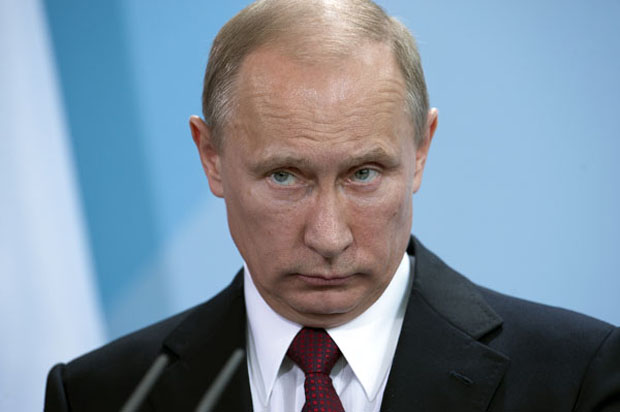
(Image: Gonçalo Silva/Demotix)
The Sochi Winter Olympics opening ceremony is taking place today, and organisers have declared that a record 65 world leaders are attending. But numbers alone don’t tell the whole story. As it turns out, some of the biggest names in global politics will not be in the stands cheer on their athletes as the games are officially kick off. Indeed, quite a few won’t be taking the trip to Sochi at all. Barack Obama is sending a delegation including openly gay figure skater Brian Boitano in his place, and Angela Merkel, David Cameron and Francois Hollande are also staying away.
But while the International Olympic Committee’s Thomas Bach was less than impressed by the apparent boycott, labelling it an “ostentatious gesture” that “costs nothing but makes international headlines”, the absence of the big guns does give the lesser-known world leaders a chance to shine. Not all guests have been confirmed, but we’ve got the low-down on some of the the leaders the cameras might pan to during today’s festivities, or who could be spotted in the slopes over the coming weeks.
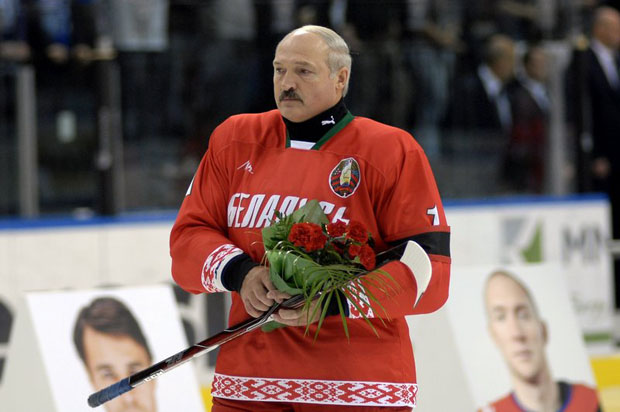
(Image: Ivan Uralsky/Demotix)
Putin’s long time colleague and fellow ice hockey enthusiast surely wouldn’t miss the Winter Olympics for the world. The Belarusian president is known as “the last dictator in Europe”, his near 20 years in power having passed without a single free and fair election. Under his leadership, peaceful protests have been violently dispersed, and civil society activists and political opposition — including rival candidates from the 2010 presidential elections — have been jailed. A brand new report from Index also concludes that: “Belarus continues to have one of the most restrictive and hostile media environments in Europe.”

(Image: Philip Janek / Demotix)
The Turkish president made global headlines last summer, over his regime’s violent crackdown on the peaceful Gezi park demonstrations. Rather than accepting the protests were a manifestation of genuine grievances by his people, he blamed “foreign hands” and their “domestic collaborators” like many a less-than-democratic leader before him. His government was recently implicated in a big corruption scandal, and only yesterday, parliament approved controversial amendments to the country’s internet law. The new law, opposed by civil society, the opposition and international organisations alike, gives the government wide-reaching powers over the internet, effectively allowing them to block websites without court rulings, and gives them access to user data.
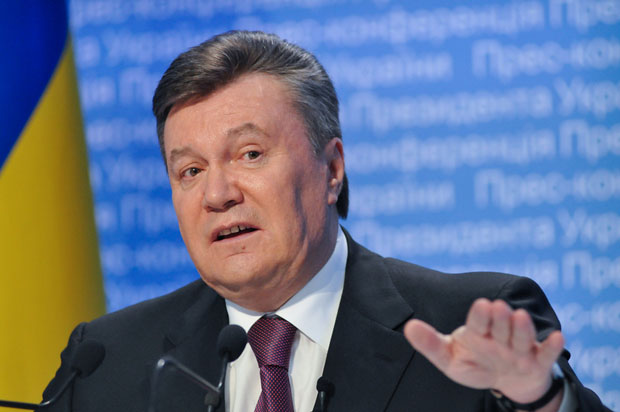
(Image: Oleksandr Nazarov/Demotix)
The Ukrainian president’s failure to sign a treaty securing closer ties with the EU in November, sparked the country’s ongoing Euromaidan protests. The authorities response was heavy handed — police clashed with demonstrators and journalist were targeted, leading to international condemnation. They authorities even briefly implemented a highly repressive new law, among other things allowing security services to monitor the internet, and defining NGOs receiving funding from abroad as “foreign agents”. The law was, however, scrapped only days later following outrage from civil society. Meanwhile,Ukraine’s Prime Minister and government also stepped down, while Yanukovych took four days off ill. He’s back in the office now — just in time head to Sochi for a much-hyped meeting with Putin.
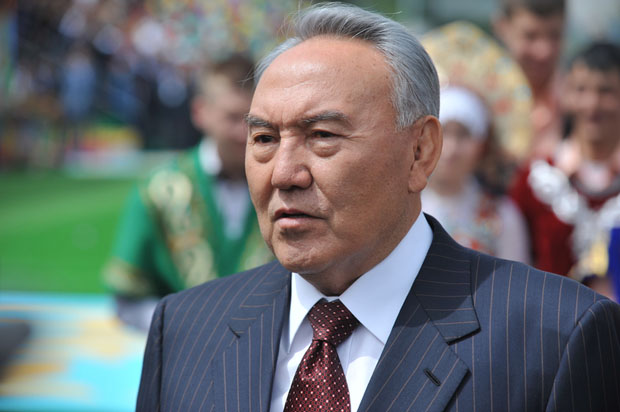
(Image: Vladimir Tretyakov/Demotix)
Kazakhstan’s president has been in power since 1991, and during that time, allegations of human rights abuses, including attacks on demonstrators and independent media, as well as widespread corruption have been regularly levelled at him. In 2012, following clashed between the police and striking workers, the president, who already effectively controls the legislature and the judiciary, further extended his emergency powers. But Putin wouldn’t even be his only high-flying friend. In September, Kanye West performed at his grandson’s wedding. The reported price tag? $3 million. Did I mention the accusations of corruption? Meanwhile, former British prime minister Tony Blair spent two years advising Nazarbayev and his government on democracy and good governance — a deal which “produced no change for the better or advance of democratic rights in the authoritarian nation”.
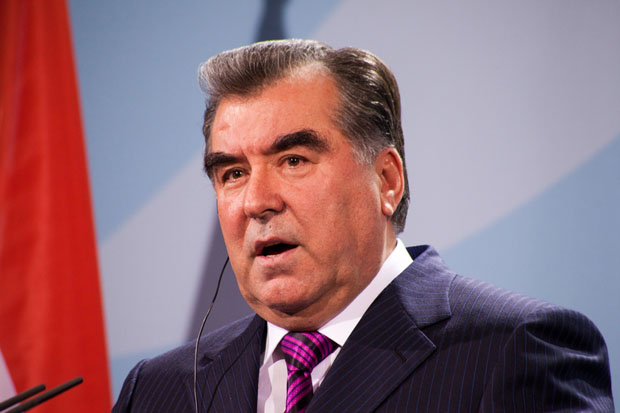
(Image: Riccardo Valsecchi/Demotix)
He has been the head of the government of Tajikistan since 1992, and was in power during the country’s civil war, where 100,000 people lost their lives. Allegations of human rights abuses, including torture by security forces and arbitrary arrests, are widespread. Much of the media is state-controlled, and independent journalists face violence and intimidation. “Publicly insulting the president” can see you jailed for as long as five years. Recently, a prominent member of the opposition, Zaid Saidov, was sentenced to 26 years in prison following what has been described as a “politically motivated trial”. In Sochi, he is set to meet with not only Putin, but also Chinese leader Xi Jinping.
This article was posted on February 7 2014 at indexoncensorship.org
[vc_row][vc_column][vc_column_text]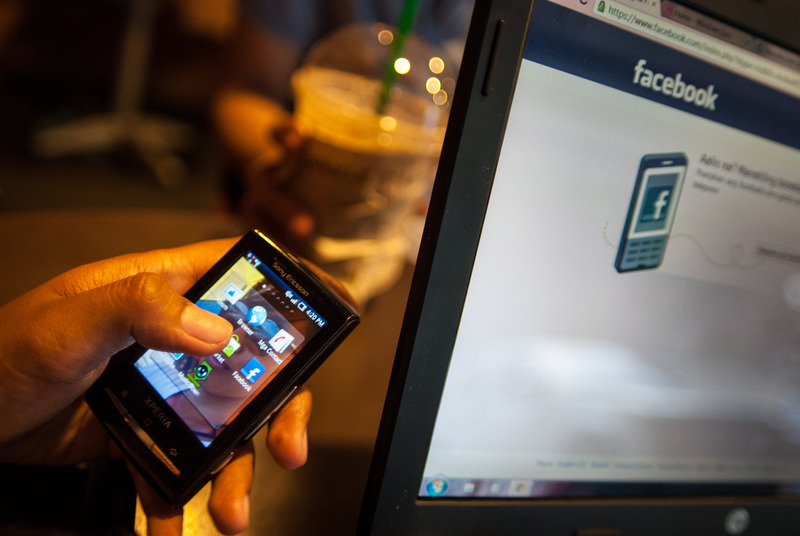
Today Facebook celebrates its 10th anniversary. The social networking giant now has over 1.23 billion users, but there are still political leaders around the world who don’t want their country to have access to the site, or those who have banned it in the past amid fears it could be used to organise political rallies.
North Korea
Perhaps the most secretive country in the world little is known about internet access in Kim Jong-un’s nation. Although a new 3G network is available to foreign visitors, for the majority of the population the internet is off limits. But this doesn’t seem to bother many who, not knowing any different, enjoy the limited freedoms offered to them by the country’s intranet, Kwangmyong, which appears to be mostly used to post birthday messages.
A limited number of graduate students and professors at Pyongyang University of Science and Technology do have access to the internet (from a specialist lab) but in fear of the outside world many chose not to use it. Don’t expect to see Kim Jong-un’s personal Facebook page any time soon.
Iran
In Iran, however, political leaders have taken to social media- despite both Facebook and Twitter officially being extraordinarily difficult to access in the country. Even President Hassan Rouhani has his own Twitter account, although apparently he doesn’t write his own tweets, but access to these accounts can only be gained via a proxy server.
Facebook was initially banned in the country after the 2009 election amid fears that opposition movements were being organised via the website.
But things may be beginning to looking up as Iran’s Culture Minister, Ali Jannati, recently remarked that social networks should be made accessible to ordinary Iranians.
China
The Great Firewall of China, a censorship and surveillance project run by the Chinese government, is a force to be reckoned with. And behind this wall sits the likes of Facebook.
The social media site was first blocked following the July 2009 Ürümqi riots after it was perceived that Xinjiang activists were using Facebook to communicate, plot and plan. Since then, China’s ruling Communist Party has aggressively controlled the internet, regularly deleting posts and blocking access to websites it simply does not like the look of.
Technically, the ban on Facebook was lifted in September 2013. But only within a 17-square-mile free-trade zone in Shanghai and only to make foreign investors feel more at home. For the rest of China it is a waiting game to see if the ban lifts elsewhere.
Cuba
Facebook isn’t officially banned in Cuba but it sure is difficult to access it.
Only politicians, some journalists and medical students can legally access the web from their homes. For everyone else the only way to connect to the online world legally is via internet cafes. This may not seem much to ask but when rates for an hour of unlimited access to the web cost between $6 and $10 and the average salary is around $20 getting online becomes ridiculously expensive. High costs also don’t equal fast internet as web pages can take several minutes to load: definitely not value for money for the Caribbean country.
Bangladesh
The posting of a cartoon to Facebook saw the networking site shut down across Bangladesh in 2010. Satirical images of the prophet Muhammad, along with some of the country’s leaders, saw one man arrested and charged with “spreading malice and insulting the country’s leaders”. The ban lasted for an entire week while the images were removed.
Since then the Awami-League led government has directed a surveillance campaign at Facebook, and other social networking sites, looking for blasphemous posts.
Article continues below[/vc_column_text][/vc_column][/vc_row][vc_row][vc_column][vc_custom_heading text=”Stay up to date on freedom of expression” font_container=”tag:p|font_size:28|text_align:left” use_theme_fonts=”yes”][vc_separator color=”black”][/vc_column][/vc_row][vc_row][vc_column width=”1/2″][vc_column_text]
Index on Censorship is a nonprofit that defends people’s freedom to express themselves without fear of harm or persecution. We fight censorship around the world.
To find out more about Index on Censorship and our work protecting free expression, join our mailing list to receive our weekly newsletter, monthly events email and periodic updates about our projects and campaigns. See a sample of what you can expect here.
Index on Censorship will not share, sell or transfer your personal information with third parties. You may may unsubscribe at any time. To learn more about how we process your personal information, read our privacy policy.
You will receive an email asking you to confirm your subscription to the weekly newsletter, monthly events roundup and periodic updates about our projects and campaigns.
[/vc_column_text][/vc_column][vc_column width=”1/2″][gravityform id=”20″ title=”false” description=”false” ajax=”false”][/vc_column][/vc_row][vc_row][vc_column][vc_separator color=”black”][/vc_column][/vc_row][vc_row][vc_column][vc_column_text]Egypt
As Egyptians took to the streets in 2011 in an attempt to overthrow the regime of Egyptian President Hosni Mubarak the government cut off access to a range of social media sites. As well as preventing protestors from using the likes of Facebook to foment unrest, many websites registered in Egypt could no longer be accessed by the outside world. Twitter, YouTube, Hotmail, Google, and a “proxy service” – which would have allowed Egyptians to get around the enforced restrictions- seemed to be blocked from inside the country.
The ban lasted for several days.
Syria
Syria, however, dealt with the Arab Spring in a different manner. Facebook had been blocked in the country since 2007 as part of a crackdown on political activism, as the government feared Israeli infiltration of Syrian social networking sites. In an unprecedented move in 2011 President Bashar al-Assad lifted the five year ban in an apparent attempt to prevent unrest on his own soil following the discontent in Egypt and Tunisia.
During the ban Syrians were still able to easily access Facebook and other social networking sites using proxy servers.
Mauritius
Producing fake online profiles of celebrities is something of a hobby to some people. However, when a Facebook page proclaiming to be that of Mauritius Prime Minister Navin Ramgoolam was discovered by the government in 2007 the entire Mauritius Facebook community was plunged into darkness. But the ban didn’t last for long as full access to the site was restored the following day.
These days it would seem Dr Ramgoolam has his own (real) Facebook account.
Pakistan
Another case of posting cartoons online, another case of a government banning Facebook. This time Pakistan blocked access to the website in 2010 after a Facebook page, created to promote a global online competition to submit drawings of the prophet Muhammad, was brought to their attention. Any depiction of the prophet is proscribed under certain interpretations of Islam.
The ban was lifted two weeks later but Pakistan vowed to continue blocking individual pages that seemed to contain blasphemous content.
Vietnam
During a week in November 2009, Vietnamese Facebook users reported an inability to access the website following weeks of intermittent access. Reports suggested technicians had been ordered by the government to block the social networking site, with a supposedly official decree leaked on the internet (although is authenticity was never confirmed). The government denied deliberately blocking Facebook although access to the site today is still hit-and-miss in the country.
Alongside this, what can be said on social networking sites like Facebook has also become limited. Decree 72, which came into place in September 2013, prohibits users from posting links to news stories or other news related websites on the social media site.
This article was published on 4 February 2014 at indexoncensorship.org[/vc_column_text][/vc_column][/vc_row][vc_row][vc_column][vc_basic_grid post_type=”post” max_items=”12″ style=”load-more” items_per_page=”4″ element_width=”6″ grid_id=”vc_gid:1538131415482-d092e45b-9f66-5″ taxonomies=”136″][/vc_column][/vc_row]
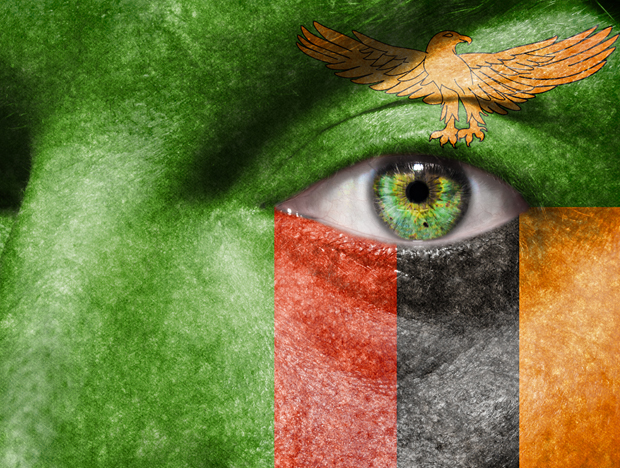
(Photo illustration: Shutterstock)
By Paul Carlucci for Think Africa Press, an online magazine that offers commentary and in-depth analysis from leading African and international thinkers.
Lusaka, Zambia: A little over two years ago, when Michael Sata was campaigning for Zambia’s top office, he promised that, if elected, he would finally bring to an end a decade of abandoned legal reform and deliver the country a definitive new constitution. Not only that, but he would do it within 90 days of taking power.
Sata’s election campaign was successful, and soon after taking office in September 2011, the new president − along with his Patriotic Front (PF) government − tasked a committee of lawyers and academics with drafting the document.
Things soon slowed down however, and it is only now − several shrugged-off deadlines later − that Zambia seems to be nearing the completion of its constitutional process. Though that’s not to say things are necessarily moving smoothly. In December 2013, the government blocked the constitutional committee from releasing its final draft to the public, insisting it be sent to the government alone, while allegations have emerged that Sata has changed his mind about Zambia’s need for a new constitution, believing instead that the existing one can simply be amended.
The government has rejected these claims, asserting that Sata’s commitment to a new constitution remains “unshakeable”, and his two-year-old promise continues to loom large in the psyche of an increasingly outraged brigade of critics. After the 2014 budget revealed a skew of alarming numbers and the global rating agency Fitch downgraded the country’s credit rating, the PF’s economic success story lost its celebrated momentum, leaving it with little more than a narrative of heavy-handed autocracy.
Many of the government’s opponents have closed in on the constitution as a panacea for all that ails the country, a movement that culminated in a major demonstration at the Cathedral of the Holy Cross in Lusaka and which took a sensational twist on 15 January when the outspoken Zambian Watchdog published what it claims is a leak of the final draft.
A torrent of official statements followed as the drafting committee denied originating the leak, the police vowed to clamp down on what they termed a ‘cybercrime’, and the government vowed to track down and punish the perpetrators of the leak. The cabinet, which is meant to be deliberating the final draft, also claimed it hasn’t yet received its copies of the document.
While the authenticity of the leaked constitution is uncertain, it doesn’t stray far from the publicly available first draft, or even from previous drafts commissioned under past administrations. Zambia’s electoral system is addressed, requiring candidates to garner over 50% of the vote to hold presidential office, while parliament would be composed of members elected through a combination of first-past-the-post and proportional representation.
The draft Bill of Rights − which includes classical first generation rights as well as social, economic and cultural rights − is also more clearly articulated than it is in the existing constitution, and it seems to be these protections, more than technical changes to governance structure, that the opposition is longing for. They complain that their protests have been menaced by police and ruling party thugs, that critical media outlets have been persecuted by the government, and that the general population, especially outside the capital Lusaka, slogs through a life of poverty, illiteracy and environmental degradation.
Indeed, tackling these problems is crucial, but here’s the rub: there’s more than enough substance in the existing constitution to transform human rights in the country. That’s not the issue. The real problem is that successive administrations, including those headed by members of the now opposition Movement for Multiparty Democracy (MMD), simply cast off their legal responsibilities when it suits them. What needs to be tackled is Zambia’s tradition of impunity, which dates all the way back to the era of its independence president, Kenneth Kaunda.
When Zambia was granted independence in 1964, it started its new life with a multiparty framework, led by Kaunda’s United National Independence Party (UNIP), which had won 55 of 75 seats in the pre-independence elections. But this wasn’t to last. In 1972, keen outmanoeuvre political opponents both inside and outside the ruling party, Kaunda banned all political parties apart from UNIP. In 1973, he formalised one-party rule in a new constitution that also that consolidated state power in the president’s office.
It was only 18 years later when Zambia was choked by debt and was facing mounting pressure from the international community that Kaunda commissioned a hasty legal review. That move led to the establishment of the 1991 constitution and multiparty elections that brought MMD leader Fredrick Chiluba to power.
Not a lot has changed since then, despite the reform commissions that have been mandated, the reports that have been produced, and the many amendments proposed. One amendment that has been passed was a provision barring candidates with foreign parentage from running for the presidency. Chiluba, assisted by Sata, who was then a member of the MMD, managed to force through this provision in 1996, effectively blocking Kaunda, whose father was born in neighbouring Malawi, from returning. The amendment still exists today, but the kinds of reforms that would hold leaders more closely to account have remained elusive.
However, in many ways, the existing constitution does a lot of things right. It contains all the baseline requisites such as human dignity, equality before the law, protection from inhuman treatment, freedom from slavery, and freedoms of religion and expression. It also explicitly protects young people from various forms of exploitation. And under the Directive Principles of State Policy section, its clauses address employment, shelter, disability, and education. It does use some derogatory language, but so too do the current drafts of the new constitution.
The problem is that despite these legal mandates, correctional facilities are overcrowded and access to justice fails many prisoners in remand; there’s a long track record of beating, arresting, and criminally charging journalists, civil society leaders, and political figures who criticise government; poverty is endemic in rural areas, where education and healthcare facilities are also inadequate and the means of pursuing a gainful livelihood are largely absent.
When it comes to social and economic rights, many developing countries explain their failures in terms of cost. How can a poor nation like Zambia be expected to improve the lot of its direly undeveloped rural areas? How can it extend its meagre health and educational resources that far? How can it afford what human rights theorists call ‘positive rights’, those measures that require government action to protect and maintain?
Part of the answer is to dam the ever-bubbling backwaters of corruption, which divert enormous sums from the country’s development agenda. While corruption charges and trials do occur – usually motivated by political reasons – leaders from Chiluba to Sata have done little to substantively affect the diversion of public money from development to private bank accounts, while Chiluba in particular oversaw the country’s most notorious chapter of embezzlement.
In the short term, real change won’t emerge from the government’s legal apparatus. It will have to come from outside. Protesting Zambians have chalked up victories before, as when public demonstrations played a role in dissuading Chiluba from seeking an unconstitutional third term. And if NGOs, beleaguered though they are by looming registration reforms, were to focus their efforts on mobilising not just urban Zambians, but also those people living in undeveloped areas, more tangible results could be achieved.
But it’s not just a case of focusing their efforts. It’s a case of refocusing them. The fight for a new and improved constitution is certainly a worthy one, but civil society organisations have made a holy grail of constitutional reform, as if delivery will automatically slacken the state’s grip on an array of levers it freely abuses, from stacking the judiciary with supporters to deploying waves of violent thugs in by-election campaigns.
The current opposition, meanwhile, is only too pleased to ally itself with activists, but given the MMD’s own history of unjust governance, the teaming up is clearly for self-serving reasons. Rather than giving politicians such an elevated podium from which to reinvent themselves, civil society would do better to zero in on specific rights violations and protest those on the same scale as they do constitutional reform.
The other piece of this puzzle is the international community. That’s a difficult prescription for a continent whose leaders routinely play their populations against what they frame as foreign interference, but sustained pressure from multilateral organisations able to reference even the current set of constitutional guarantees would help consolidate demands made in the streets.
None of this is to say that robust laws can’t lay the groundwork for a future of mature, responsive governance. A strong legal framework, no matter its current irrelevance, will make for useful terms of reference in a more developed future, and human rights theorists habitually point to ambitious laws as key components to equitable progress. Indeed, what is a pie in the sky today could very well become steak on the plate tomorrow. The point is that it will take more than a good-looking tablecloth to make that happen.
Paul Carlucci is a Canadian writer and journalist based in Lusaka, Zambia. He has reported from Ghana and Ivory Coast for Think Africa Press, IPS Africa, Al Jazeera English, the Toronto Star, and the Toronto Standard. His collection of short stories ‘The Secret Life of Fission’ is available through Oberon Press. Follow him on twitter @PaulCarlucci.
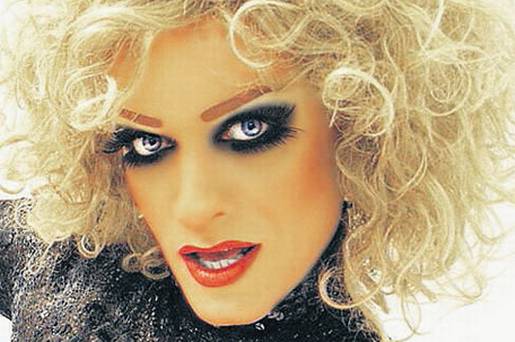
Rory O’Neill’s alter ego Panti
Irish state-run television broadcaster RTE has come under heavy criticism after offering a full apology and possible financial compensation to the Iona Institute, a conservative Catholic lobby groups declared “homophobic” by a talk show guest.
The decision appears to have been reached under pressure from Irish Broadcasting Authority board member John Waters, who was also declared homophobic during the same segment. The allegations follow RTE’s decision to remove the remarks, made by Rory O’Neill who performs as one of Ireland’s most acclaimed drag queens under the name Miss Panti, and extensive popular debate about the treatment of Ireland’s conservative lobby groups in mainstream media.
On RTE’s The Saturday Night Show, O’Neill declared a number of prominent Conservative advocates, specifically Breda O’Brien, John Waters, and “The Iona Institute crowd” homophobic. RTE removed the segment from its online player the following day, citing legal concerns as well as the recent murder of Iona Institute researcher Tom O’Gorman as a matter of “sensitivity”‘ although later admitting O’Gorman was not relevant to the program content. On January 25th, the show’s host Brendan O’Connor formally apologised for the distress caused to John Waters and other columnists. The Iona Institute has thanked RTE for the apology, which it called “an extremely valuable contribution to a calm and reasonable debate” and explained that RTE had also agreed to pay damages to the injured parties. When asked about the claim that damages would be paid over O’Neill’s comments, an RTE television spokesperson declined to comment. Neither side would confirm the identity of the claimants.
RTE’s sudden condemnation of the remarks has been linked to legal action pursued by John Waters, a conservative Catholic commentator and journalist, and board member of the Broadcasting Authority of Ireland . The Irish Independent cite anonymous sources confirming that legal representatives of Waters sent a legal letter to the broadcaster seeking the removal of the interview on the popular Saturday Night Show. It has since been restored to the website, though the offending portions of O’Neill’s interview have been edited out. Waters resigned from his position with the Irish Broadcasting Authority on January 23rd, after the letters had been drafted and sent. His decision to legally challenge RTE has been broadly criticized as an abuse of office. As solicitor Simon McGarr explains, this “was not merely a letter from an aggrieved citizen to a broadcaster. It was also a letter from one of that Broadcaster’s regulators seeking to have that broadcaster censor a citizen, who was both contributing to a matter of public debate and engaging in a defence of a minority of which he is a member, bona fide and without malice”. Waters has declined all requests for media comment.
Since his appearance on The Saturday Night Show, O’Neill has confirmed receiving personal legal correspondence from Breda O’Brien, David Quinn, Patricia Casey, and John Murray, all patrons of the Iona Institute. In a statement released on its blog, the Iona Institute defended the measure, explaining: “The problem is that merely believing that marriage is the sexual union of a man and a woman, and that children deserve the love of both a mother and a father whenever possible is automatically deemed to be ‘homophobic’ by those wishing to close down this debate.” This defamation, they claim, is harmful to political discussion.
Any private claims of defamation, explains barrister Brian Barrington, are unlikely to hold up in court, explaining: “Mr O’Neill’s comments arise in a context where the Iona Institute is well known in Ireland for its opposition to affording equal marriage rights to gays and lesbians and also for its opposition to same-sex parenting. It seeks to maintain the current discrimination whereby same-sex couples are prohibited from marrying whereas opposite sex couples are free to do so. In these circumstances, it is clear that Mr O’Neill was entirely entitled to express his honestly held opinion, which was based on facts that were reasonably known to the public.” Criticism of RTE for reacting to such a baseless legal case is well founded. “‘It is astonishing that RTE, a national broadcaster, should apologise for what Mr O’Neill has stated, censor his interview on the internet and award public money to those in the Iona Institute who have sought to prevent a free debate on equal marriage by preventing gay rights campaigners from uttering in future that opposition to same sex marriage is homophobic,” he explains.
Irish media have come under fire for a number of complaints of homophobia in recent weeks, including a discussion on RTE radio program The God Slot that discussed “curing” homosexuality and a Midwest Radio presenter’s decision to read a text on air that suggested children of gay couples could develop Aids. Ireland will legislate on a number of key gay rights issues in the coming years, including full legal recognition of gay adoptive parents, and a constitutional referendum on the legalisation of gay marriage is scheduled for 2015. The imminent debate has many calling for a “homophobia watchdog” to monitor public statements.
Una Mullally, a columnist for the Irish Times, explains: “‘Free speech’ is not a free pass to inflict psychological trauma just because you don’t want lesbians or gay people to get married. Opponents of marriage equality are not the victims in this debate.”
This article was posted on 30 January 2014 at indexoncensorship.org